Lesson 21 Books or Computers? 课件(共22张PPT)
文档属性
| 名称 | Lesson 21 Books or Computers? 课件(共22张PPT) |
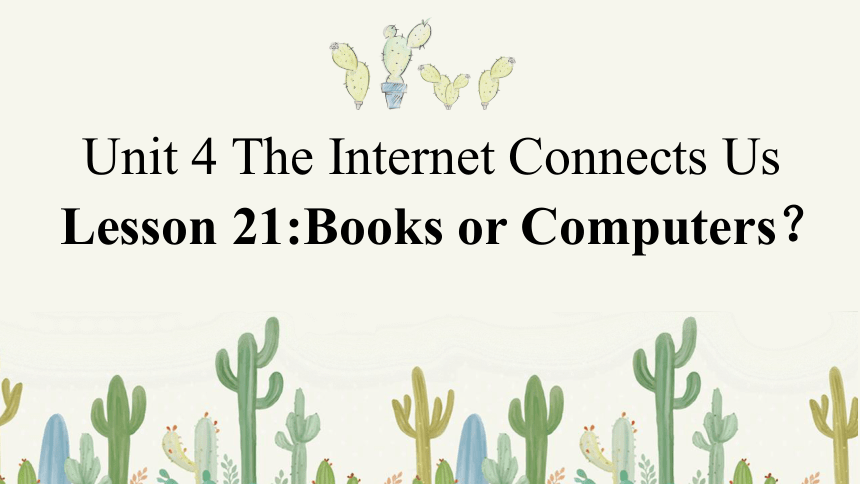
|
|
| 格式 | pptx | ||
| 文件大小 | 2.8MB | ||
| 资源类型 | 教案 | ||
| 版本资源 | 冀教版 | ||
| 科目 | 英语 | ||
| 更新时间 | 2022-04-07 19:21:24 | ||
图片预览

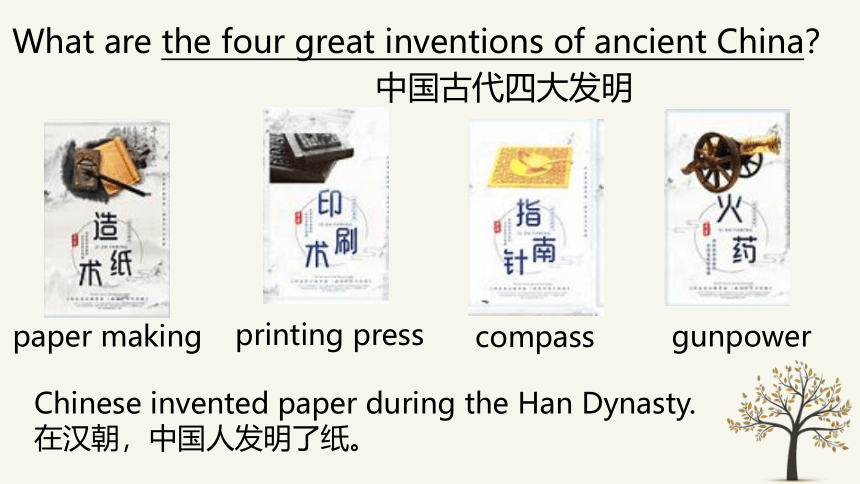

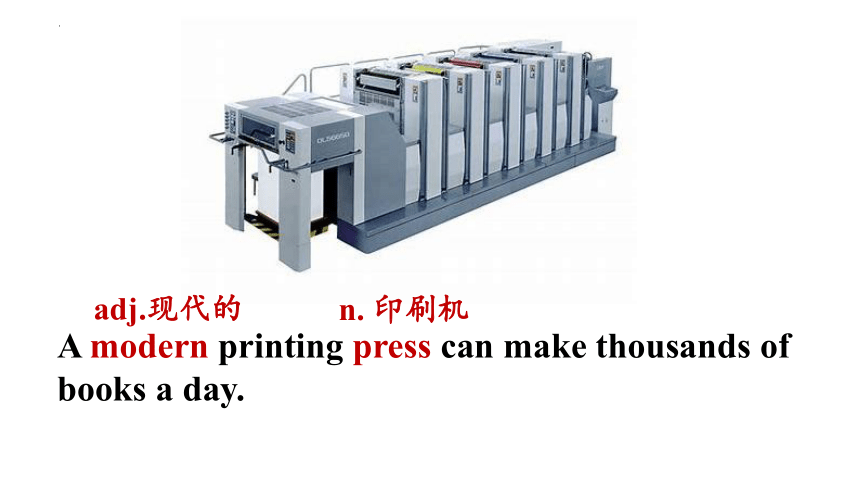
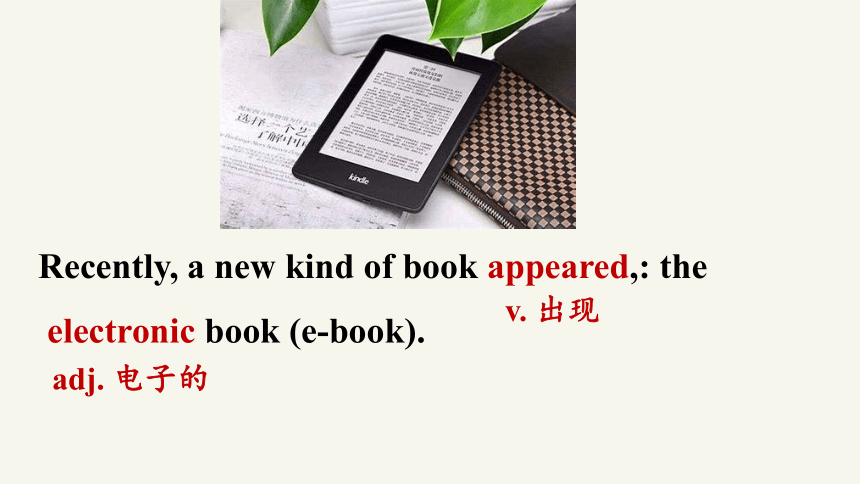
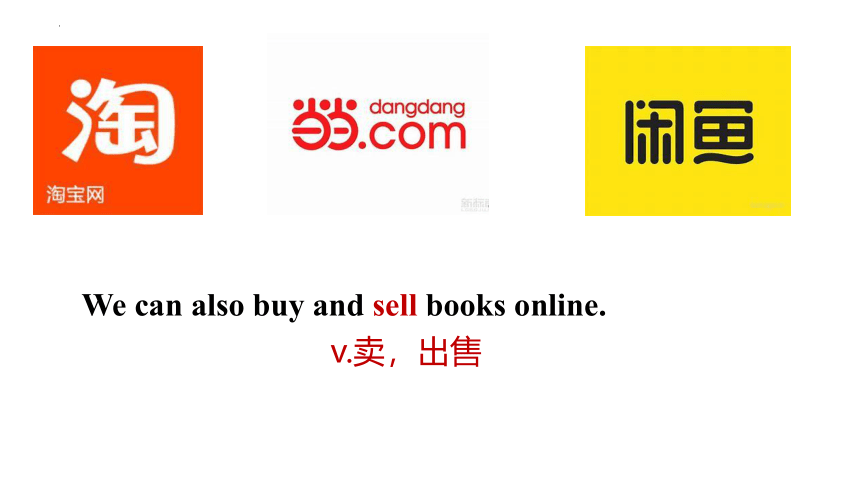
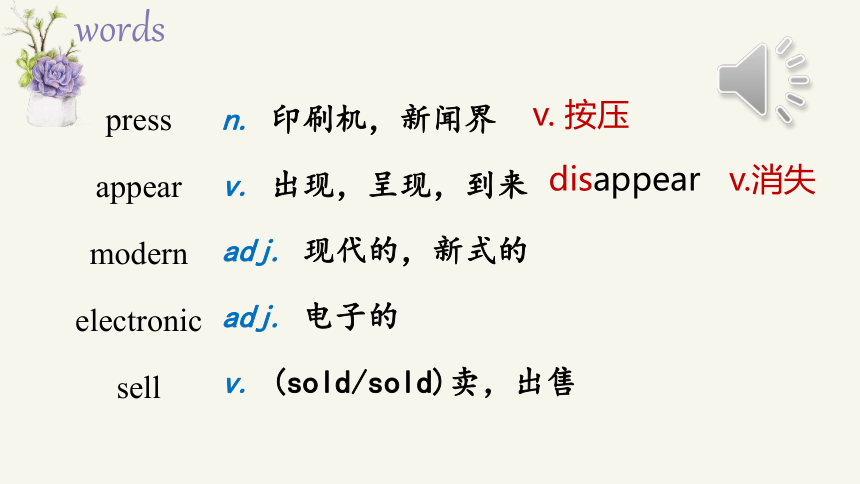
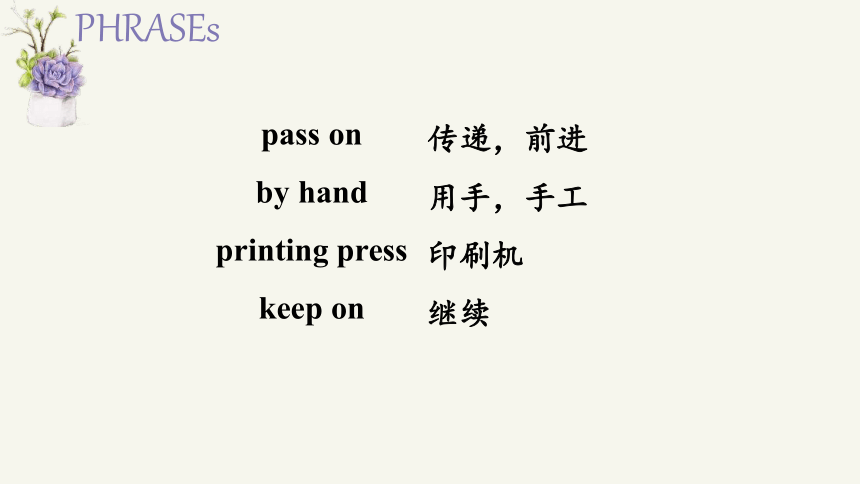
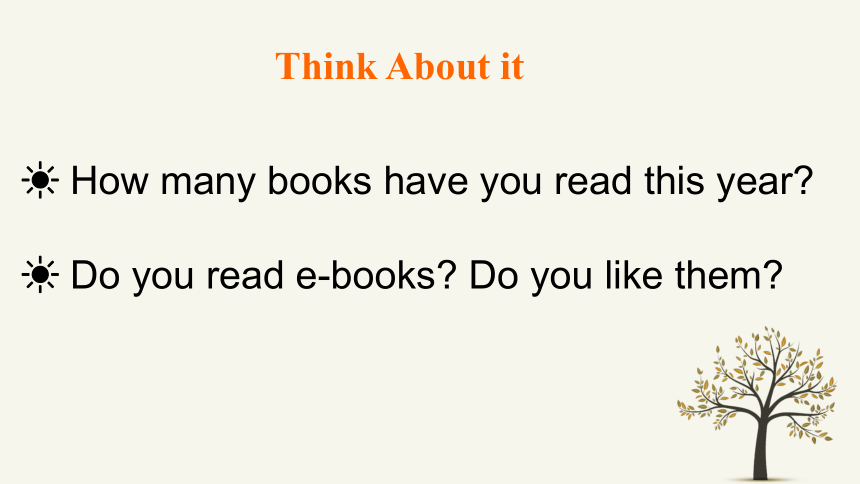
文档简介
(共22张PPT)
Unit 4 The Internet Connects Us
Lesson 21:Books or Computers?
What are the four great inventions of ancient China?
中国古代四大发明
paper making
printing press
compass
gunpower
Chinese invented paper during the Han Dynasty.
在汉朝,中国人发明了纸。
A Chinese man named Cai Lun made paper first.
It took people a long time to write books by hand.
用手,手工
A modern printing press can make thousands of books a day.
adj.现代的
n. 印刷机
Recently, a new kind of book appeared,: the
electronic book (e-book).
v. 出现
adj. 电子的
We can also buy and sell books online.
v.卖,出售
words
press
appear
modern
electronic
sell
n. 印刷机,新闻界
v. 出现,呈现,到来
adj. 现代的,新式的
adj. 电子的
v. (sold/sold)卖,出售
v. 按压
disappear v.消失
PHRASEs
pass on
by hand
printing press
keep on
传递,前进
用手,手工
印刷机
继续
Think About it
How many books have you read this year
Do you read e-books Do you like them
Read the lesson and put the sentences in the correct order.
(读文章并按正确的顺序排列句子)
The History of the Book
□It took a long time to write just one book.
□It made it possible for common people to read books.
□The e-book appeared.
□People had no books,and they shared knowledge by telling stories.
□The printing press appeared.
□People download books from the Internet.
□With paper,people began to write down stories.
3
5
6
1
4
7
2
The history of books is very interesting. In ancient times,there were no books,and people passed on their knowledge by telling stories. Later,people learned how to write and make paper. With paper,people began to write down their stories. They wrote each word by hand. It took a long time to write just one book!
1. How did people write books in ancient times
By hand.
Then, the printing press appeared and changed the world . With modern technology, it was possible to print books quickly. It was also possible for common people to read books .
Recently, computers and the Internet changed the world again. A new kind of book appeared: the electronic book(e- book).E -books are quickly changing people’s reading habits. It is easier for people to buy and sell books online. Information travels faster and farther.
_______________ appeared and made it possible to print books quickly.
What kind of books quickly changed people’s read habits
Information travels faster and farther.
The printing press
E-books.
信息传播的更快更远了。
Nowadays, people have many ways to read books . No matter what you have,a computer,a tablet,a laptop,an e-reader or a real book,keep on reading!
What is the purpose of the last paragraph
To call on( 号召) people to make use of computers.
To call on people to keep on reading.
To tell people the disadvantages(劣势) of computers and the Internet.
To tell people the advantages(优势) of paper.
√
3) Fill in the blanks . The first letter is given .
Paper
With paper,people began to write down their stories. People wrote each word by hand . It took a long time to write one book . _____________ couldn’t travel far.
Printing Press
When the printing press __________,it changed the world . The ________ printing press can print books quickly,and makes it possible for the _________ person to have easy access to books .
Information
appeared
modern
common
Internet
Computers and the Internet changed the world. They made it possible for a new kind of book: the be__________ bought and sold at a store,but today you can buy and _______ books online .
electronic
sell
Language points
In ancient times,there were no books,and people passed on their knowledge by telling stories.
在古代,没有书,人们通过讲故事传授知识。
pass on 传递,传授
pass on love 传递爱
pass on information 传递信息
pass on traditional skills 传授传统技能
cost 物+ cost+人+ 金钱 The ticket cost me ten dollars .
这张票花了我十美元。
spend 人+spend+时间/金钱+on+名词/代词 I spent all my pocket money on books .
我所有的零花钱都花在书上了。
take It +takes/took+人+时间+to do It took me an hour to walk there .
我花了一小时走到那儿。
pay 人+pay+金钱+ for+物 He paid $5 for that book .
他花了5美元买那本书。
2. Later,people learned how to write and make paper.
后来人们学会了怎样写字和造纸。
The boy didn’t know which to choose.
那个男孩不能决定选哪个。
We haven’t decided where to go.
我们还没决定去哪儿。
结构:
疑问词(what/who/which/how where when)+动词不定式
3. No matter what you have,keep on reading!
无论你有什么,坚持读下去!
keep-kept-kept
The little boy stopped to have a look, then kept on _______ (eat) its banana.
e.g.他昨晚连续工作了几个小时。
He kept working for a few hours last night.
①keep on doing sth. 继续,反复做某事
eating
①keep doing sth. 不间断的做某事
Exercise
you, book, can, electronic, the, use
Printing, paper, quickly, makes, the, press
Do, how, books, carry, information
World, the, a, lot, internet, changed, the
Reading, he, the, finished, in, a, book, time, short
Can you use the electronic book
The printing press makes paper quickly.
How do books carry information
The internet changed the world a lot.
He finished reading the book in a short time.
Unit 4 The Internet Connects Us
Lesson 21:Books or Computers?
What are the four great inventions of ancient China?
中国古代四大发明
paper making
printing press
compass
gunpower
Chinese invented paper during the Han Dynasty.
在汉朝,中国人发明了纸。
A Chinese man named Cai Lun made paper first.
It took people a long time to write books by hand.
用手,手工
A modern printing press can make thousands of books a day.
adj.现代的
n. 印刷机
Recently, a new kind of book appeared,: the
electronic book (e-book).
v. 出现
adj. 电子的
We can also buy and sell books online.
v.卖,出售
words
press
appear
modern
electronic
sell
n. 印刷机,新闻界
v. 出现,呈现,到来
adj. 现代的,新式的
adj. 电子的
v. (sold/sold)卖,出售
v. 按压
disappear v.消失
PHRASEs
pass on
by hand
printing press
keep on
传递,前进
用手,手工
印刷机
继续
Think About it
How many books have you read this year
Do you read e-books Do you like them
Read the lesson and put the sentences in the correct order.
(读文章并按正确的顺序排列句子)
The History of the Book
□It took a long time to write just one book.
□It made it possible for common people to read books.
□The e-book appeared.
□People had no books,and they shared knowledge by telling stories.
□The printing press appeared.
□People download books from the Internet.
□With paper,people began to write down stories.
3
5
6
1
4
7
2
The history of books is very interesting. In ancient times,there were no books,and people passed on their knowledge by telling stories. Later,people learned how to write and make paper. With paper,people began to write down their stories. They wrote each word by hand. It took a long time to write just one book!
1. How did people write books in ancient times
By hand.
Then, the printing press appeared and changed the world . With modern technology, it was possible to print books quickly. It was also possible for common people to read books .
Recently, computers and the Internet changed the world again. A new kind of book appeared: the electronic book(e- book).E -books are quickly changing people’s reading habits. It is easier for people to buy and sell books online. Information travels faster and farther.
_______________ appeared and made it possible to print books quickly.
What kind of books quickly changed people’s read habits
Information travels faster and farther.
The printing press
E-books.
信息传播的更快更远了。
Nowadays, people have many ways to read books . No matter what you have,a computer,a tablet,a laptop,an e-reader or a real book,keep on reading!
What is the purpose of the last paragraph
To call on( 号召) people to make use of computers.
To call on people to keep on reading.
To tell people the disadvantages(劣势) of computers and the Internet.
To tell people the advantages(优势) of paper.
√
3) Fill in the blanks . The first letter is given .
Paper
With paper,people began to write down their stories. People wrote each word by hand . It took a long time to write one book . _____________ couldn’t travel far.
Printing Press
When the printing press __________,it changed the world . The ________ printing press can print books quickly,and makes it possible for the _________ person to have easy access to books .
Information
appeared
modern
common
Internet
Computers and the Internet changed the world. They made it possible for a new kind of book: the be__________ bought and sold at a store,but today you can buy and _______ books online .
electronic
sell
Language points
In ancient times,there were no books,and people passed on their knowledge by telling stories.
在古代,没有书,人们通过讲故事传授知识。
pass on 传递,传授
pass on love 传递爱
pass on information 传递信息
pass on traditional skills 传授传统技能
cost 物+ cost+人+ 金钱 The ticket cost me ten dollars .
这张票花了我十美元。
spend 人+spend+时间/金钱+on+名词/代词 I spent all my pocket money on books .
我所有的零花钱都花在书上了。
take It +takes/took+人+时间+to do It took me an hour to walk there .
我花了一小时走到那儿。
pay 人+pay+金钱+ for+物 He paid $5 for that book .
他花了5美元买那本书。
2. Later,people learned how to write and make paper.
后来人们学会了怎样写字和造纸。
The boy didn’t know which to choose.
那个男孩不能决定选哪个。
We haven’t decided where to go.
我们还没决定去哪儿。
结构:
疑问词(what/who/which/how where when)+动词不定式
3. No matter what you have,keep on reading!
无论你有什么,坚持读下去!
keep-kept-kept
The little boy stopped to have a look, then kept on _______ (eat) its banana.
e.g.他昨晚连续工作了几个小时。
He kept working for a few hours last night.
①keep on doing sth. 继续,反复做某事
eating
①keep doing sth. 不间断的做某事
Exercise
you, book, can, electronic, the, use
Printing, paper, quickly, makes, the, press
Do, how, books, carry, information
World, the, a, lot, internet, changed, the
Reading, he, the, finished, in, a, book, time, short
Can you use the electronic book
The printing press makes paper quickly.
How do books carry information
The internet changed the world a lot.
He finished reading the book in a short time.
同课章节目录
- Unit 1 Spring Is Coming
- Lesson 1 How's the weather?
- Lesson 2 It's Getting Warmer!
- Lesson 3 Sun Is Rising
- Lesson 4 The Spring City
- Lesson 5 Babysitting on a Spring Day
- Lesson 6 Stories about Spring
- Unit 2 Plant a Plant
- Lesson 7 Planting Trees
- Lesson 8 Why Are Plants Important?
- Lesson 9 Gardening with Mary
- Lesson 10 Make Your Garden Grow!
- Lesson 11 Amazing Plants
- Lesson 12 Danny's Plant
- Unit 3 Animals Are Our Friends
- Lesson 13 Danny's Big Scare
- Lesson 14 Amazing Animals
- Lesson 15 The Zoo Is Open
- Lesson 16 The Pear Escaped
- Lesson 17 Save the Tigers
- Lesson 18 Friendship Between Animals
- Unit 4 The Internet Connects Us
- Lesson 19 How Do You Use the Internet?
- Lesson 20 A Computer Helps!
- Lesson 21 Books or Computers?
- Lesson 22 Travel on the Internet
- Lesson 23 The Internet--Good or Bad?
- Lesson 24 An E-mail to Grandpa
- Unit 5 Buying and Selling
- Lesson 25 Raising Money
- Lesson 26 Cookies, Please!
- Lesson 27 Business English
- Lesson 28 Ms. Liu's Great Idea
- Lesson 29 How to Push a Product
- Lesson 30 A Cookie Sale
- Unit 6 Be a Champion!
- Lesson 31 Don't Fall, Danny
- Lesson 32 My Favourite Record
- Lesson 33 2800 Years of Sports
- Lesson 34 Modern Olympics
- Lesson 35 The Dream Team
- Lesson 36 Classroom Olympics
- Unit 7 Know Our World
- Lesson 37 Let's Learn Geography!
- Lesson 38 The World Is a Big Place
- Lesson 39 Ring Up or Call?
- Lesson 40 Body Language
- Lesson 41 A Class of the World
- Lesson 42 North America
- Unit 8 Save Our World
- Lesson 43 Let's Clean Up!
- Lesson 44 Environment Clubs
- Lesson 45 Let's Sort Garbage!
- Lesson 46 Protect Our Environment
- Lesson 47 Connected to Nature
- Lesson 48 Garbage Is Interesting!
